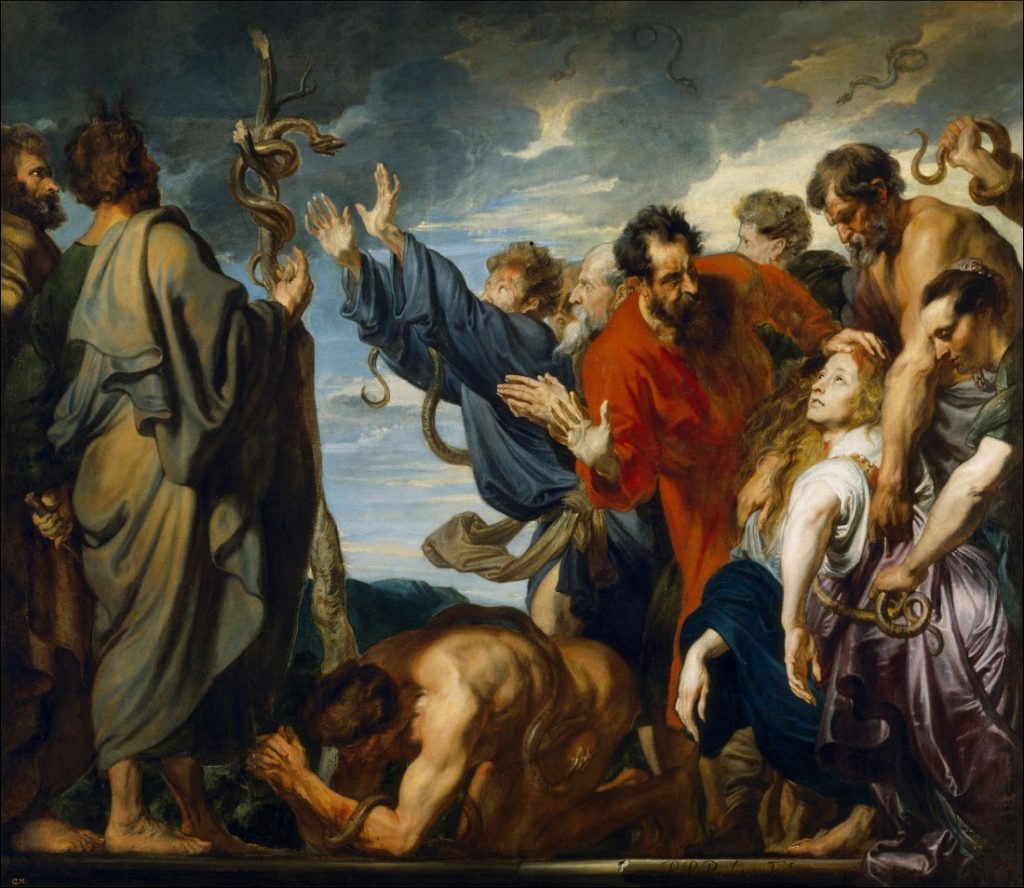In today’s Gospel reading Jesus refers back to the lifting up of the bronze serpent from the Book of Numbers where the Israelites are wandering in the desert and start to complain against God and Moses. As a punishment (divine justice for their disobedience), God sends venomous snakes to bite the people and many of them die. Moses prays to God and is instructed to make a bronze serpent and place it on a pole so that those who are bitten can look at it and be healed.
This act of obedience and trust in God’s instructions ultimately leads to the healing of the Israelites and serves as a reminder of God’s power and mercy. It is also seen as a foreshadowing of Jesus’ crucifixion, where he is lifted up on the cross for the salvation of all who believe in him.
St Cyril of Alexandria (376-444 AD), an early church father, explains the spiritual meaning of the bronze serpent and how it points to the saving work of Jesus Christ: “This story is a type of the whole mystery of the incarnation. For the serpent signifies bitter and deadly sin, which was devouring the whole race on the earth… biting the Soul of man and infusing it with the venom of wickedness. And there is no way that we could have escaped being conquered by it, except by the relief that comes only from heaven. The Word of God then was made in the likeness of sinful flesh, ‘that he might condemn sin in the flesh’ [Romans 8:3], as it is written. In this way, he becomes the Giver of unending salvation to those who comprehend the divine doctrines and gaze on him with steadfast faith. But the serpent, being fixed upon a lofty base, signifies that Christ was clearly manifested by his passion on the cross, so that none could fail to see him.” (COMMENTARY ON THE GOSPEL OF JOHN 2.1)
St Hilary of Poitiers, 315-367 A.D wrote “God, who loved the world, gave his only begotten Son as a manifest token of his love. If the evidence of his love is this, that he bestowed a creature on creatures, gave a worldly being on the world’s behalf, granted one raised up from nothing for the redemption of objects equally raised up from nothing, such a cheap and petty sacrifice is a poor assurance of his favor toward us. Gifts of price are the evidence of affection: the greatness of the surrender is evidence of the greatness of the love. God, who loved the world, gave no adopted son but his own, his only begotten [Son]. Here is personal interest, true sonship, sincerity; not creation, or adoption, or pretence. Here is the proof of his love and affection, that he gave his own, his only begotten Son.” (excerpt from ON THE TRINITY 6.40.27)
Do you know the healing power of Christ’s redeeming love and victory which he won for us on the cross?


No responses yet